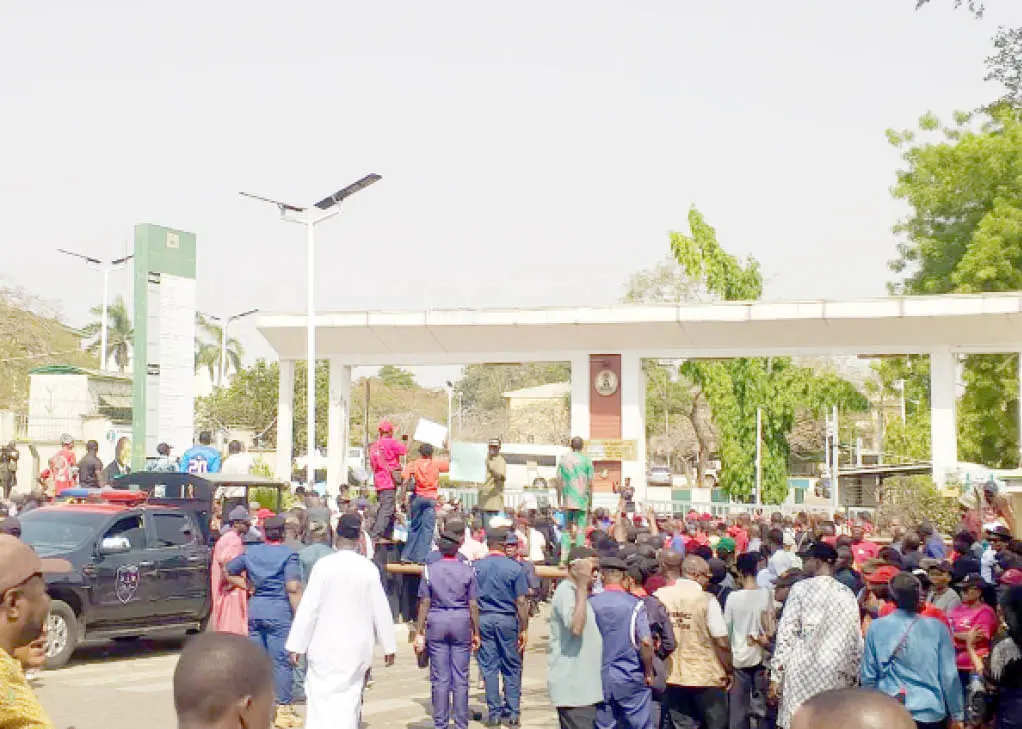Firms to refund N105b as Ikeja, Abuja, Enugu lead overbilling pack
More than two million Nigerian electricity consumers were overbilled by Distribution Companies (DisCos) in 2024, a development which has led to credit adjustments totalling N105.05 billion amid rising estimated bills and violation of market orders.
The figures, contained in the Nigerian Electricity Regulatory Commission (NERC)’s 2024 yearly report, show a troubling rise in overbilling following the controversial implementation of the Band A tariff, a rate regime that remains burdensome for most end-users.
With collection efficiency remaining poor as DisCos rely more on subsidies from the Federal Government and customer reclassification into Band A, consumers continue to agitate for a more decisive and time-bound approach to metering in Nigeria, as sector stakeholders condemn the continued reliance on estimated billing and the vulnerability it creates for millions of unmetered households.
In response, the NERC imposed sanctions on erring DisCos, deducting additional N10.5 billion from their allowable operating expenditure (OpEx), part of an intensified regulatory clampdown following the implementation of the Electricity Act.
Nigeria travel packages
In February 2024, NERC fined 11 DisCos for violating the capping of estimated billing from January to September 2023. A similar sanction followed in April 2024, when eight DisCos were penalised for breaches between July and September 2024. In both cases, the utilities were ordered to adjust customers’ bills and energy credits accordingly, while portions of their OpEx were withheld as penalties.
DisCos were further directed to publish lists of affected customers and the corresponding credit adjustments on their websites or in newspapers.
A source at the commission, who pleaded anonymity, said NERC had documented backend checks and verified the affected customers were refunded in the form of credit to ensure compliance.
NERC said the affected customers were all under estimated billing plans and were protected by the Capping Order, which limited how much DisCos can bill a customer without a meter.
A total of 2,021,913 customers were impacted across the eleven DisCos, with Ikeja Electric, Abuja DisCo, and Enugu DisCo accounting for the largest numbers of overbilled customers and the biggest financial adjustments.
Ikeja Electric led with N20.95 billion in credits issued to 300,079 customers. Abuja DisCo followed closely, refunding N17.87 billion to 300,013 customers. Enugu DisCo adjusted N11.87 billion for 302,062 customers. Port Harcourt and Eko DisCos each issued refunds of N14.19 billion and N14.14 billion, respectively.
The financial deductions from the DisCos’ operating expenses also signal the gravity of their infractions. Ikeja Electric again topped the list, facing an OpEx deduction of N2.10 billion, followed by Abuja (N1.79 billion), Port Harcourt (N1.42 billion), and Eko (N1.41 billion).
Although Jos DisCo had one of the highest numbers of affected customers—466,621—it refunded N13.32 billion, a figure that reflects lower per-customer adjustments. Smaller utilities such as Yola, Kano, and Kaduna DisCos recorded significantly lower refunds: Yola paid N541.89 million to 18,955 customers, Kano refunded N196.98 million to 25,644 customers, and Kaduna issued N1.15 billion to 27,027 customers.
These regulatory interventions signal NERC’s firm stance on estimated billing and non-compliance with the capping regulation, which restricts how much unmetered customers can be charged. The credit adjustments represent monetary refunds or account offsets to rectify previous overcharges.
Yet, the data also exposes persistent metering challenges and the vulnerability of customers in a power market where trust remains fragile. With over two million customers affected in a single year, estimated billing continues to undermine consumer confidence.
As of 31 December 2024, NERC said only 6,288,642 (46.57 per cent) of the registered 13,503,342 customers in the market were metered. DisCos installed 572,055 end-use customer meters in 2024 using the different metering frameworks.
Meanwhile, the pressure on end-users has intensified under the revised Band A tariff regime. Despite widespread complaints of unreliable power supply, NERC expanded the number of Band A feeders—those expected to deliver 20 hours of daily electricity—from 481 in April 2024 to 1,261 by April 2025, marking a 162 per cent surge.
While this reclassification may have helped to shore up the sector’s liquidity, it has also exacerbated public frustration.
Stakeholders stated that the feeders are no longer restricted to affluent neighbourhoods and now cut across underserved and poorer communities, raising questions about equity, service quality, and the transparency of the exercise.
The performance data under the 2024 Multi-Year Tariff Order (MYTO) also offers a bleak picture as nearly all DisCos failed to meet their Aggregate Technical, Commercial and Collection (ATC&C) loss targets.
Abuja, with a MYTO loss target of 25 per cent, recorded 38.51 per cent. Benin and Enugu posted losses of 31.98 per cent and 39.10 per cent, respectively. Ibadan and Ikeja exceeded their targets with 34.62 and 30.44 per cent losses, against benchmarks of 25.00 and 18.73 per cent. Jos and Kaduna performed even worse, reporting losses of 60.74 and 66.52 per cent. Only Yola DisCo performed close to expectations, with a loss of 54.63 per cent against a target of 56.00 per cent. Overall, the national MYTO target stood at 24.73 per cent, while actual ATC&C losses hit 37.95 per cent.
The Minister of Power, Adebayo Adelabu, has however, warned against fragmented regulation as more States establish their own electricity markets.
“While we fully respect the constitutional rights of States to determine how their electricity markets should evolve, it is equally critical to involve the Federal Government, particularly as the custodian of the national grid and wholesale market,” Adelabu said.
He warned that uncoordinated actions at the subnational level risk undermining the entire sector as any misalignment could create technical, commercial, or regulatory conflicts that weaken grid stability, disrupt power supply to neighbouring States, and undermine investor confidence.
The Minister called for regulatory alignment between Federal and State bodies to protect consumers and reassure investors.
“We must work hand in hand to harmonise standards and coordinate frameworks… A fragmented regulatory environment creates uncertainty, duplicated efforts, and slows sector development,” Adelabu stated.
He also urged state regulators to prioritise electrification of underserved communities, noting that the Rural Electrification Agency (REA) is ready to provide both technical and financial support for impactful mini-grid and standalone solutions in remote areas.
Adelabu reiterated that a stable, investor-friendly, and consumer-centred electricity market hinges on strong collaboration and policy alignment.
“Our common goal is to ensure every Nigerian has access to reliable electricity… to power homes, businesses, industries, and our economy.”
Nigeria travel packagesA prominent power sector consumer advocate, Adetayo Adegbemle, acknowledged the recent regulatory actions as a step in the right direction.
“I believe the regulators have done well by penalising the DisCos involved,” he said. However, he cautioned that enforcement must go beyond isolated sanctions.
According to him, a more robust monitoring framework is needed to ensure transparency and accountability.
He urged NERC and related agencies to create platforms that allow consumers to confirm whether refunds or credit adjustments have been executed.
“It would be helpful if the regulators provided avenues for consumer feedback on such refunds,” he said, emphasising the importance of public trust in the regulatory process.
More critically, Adegbemle argued that the estimated billing regime is inherently flawed and should be phased out entirely.
“The best policy would have seen the majority of consumers metered to totally avoid estimated billing,” he stated.
He further recommended that regulators adopt a more punitive approach toward DisCos that fail to close the metering gap.
Despite several government-backed initiatives such as the Meter Asset Provider (MAP) scheme and the National Mass Metering Programme (NMMP), progress has remained sluggish. Millions of consumers remain unmetered, leaving them exposed to arbitrary billing practices that often defy logic or fairness.
A petroleum economist and public policy expert, Prof. Wumi Iledare, described the continued reliance on estimated billing as “a paradox riddled with inefficiency and inequity.”
In his view, what was meant to be a temporary solution has become a permanent loophole for exploitation.
Iledare said: “Estimated billing was meant to be a temporary mechanism, but it has turned into a permanent tool for exploiting unmetered consumers. The notion that estimated bills will be reconciled with actual consumption data assumes a future that is not in sight. This reflects a deeper structural failure in governance and accountability.”
He criticised DisCos for shifting the burden of inefficiencies, such as technical and commercial losses, onto consumers who are unable to verify their actual consumption.
There is now a growing consensus among stakeholders that estimated billing must be phased out through the enforcement of a time-bound metering compliance framework.
Advocacy groups are calling for stricter penalties against non-compliant utilities and more proactive efforts to accelerate the deployment of smart meters nationwide.
“You cannot run a credible utility sector on estimates and assumptions,” Prof. Iledare warned. “Transparency in billing is the bedrock of consumer trust and sector reform. Anything short of full metering sustains the dysfunction.”
A former President of the Chartered Institute of Bankers of Nigeria (CIBN), Professor Segun Ajibola, described the persistent issue of estimated electricity billing in Nigeria as a long-standing problem enabled by the monopolistic nature of the power distribution system.
Ajibola said the move by NERC was commendable but insufficient unless backed by stringent enforcement mechanisms and serious penalties.
Nigeria travel packages
“For decades, estimated billing has plagued the Nigerian electricity market, long before the introduction of prepaid meters,” he said. “It’s a convenient way for providers to earn revenue without delivering commensurate service.”
Ajibola argued that because DisCos operate as monopolies, Nigerian consumers are left with limited protection and recourse, a situation reminiscent of the era when the now-defunct NITEL held sway over telecommunications before the entry of GSM providers disrupted the market.
He noted that distribution companies have often been accused of deliberately stalling the deployment of prepaid meters, as widespread metering would significantly reduce reliance on arbitrary billing practices.
While applauding NERC’s directive for customer refunds, Ajibola stressed the need for concrete follow-through, adding “The regulator must ensure that this refund order is not just a pronouncement but one that is properly monitored and enforced.”
He further warned that unless the government and regulatory bodies impose tougher sanctions on erring DisCos, the cycle of exploitation may persist indefinitely.
Nigeria travel packages“Beyond refunds, only heavy penalties will deter this kind of impunity. Otherwise, we may continue to witness the same pattern of abuse far into the future,” he said.
































